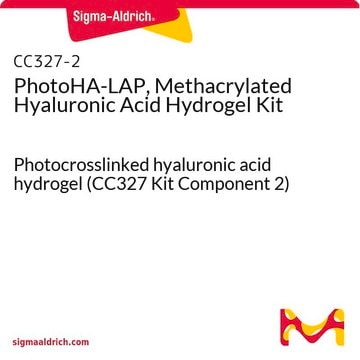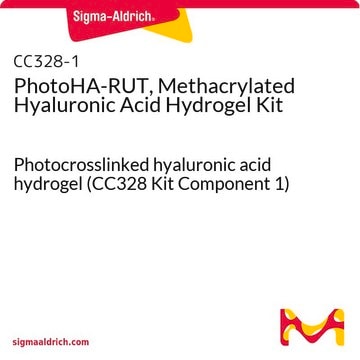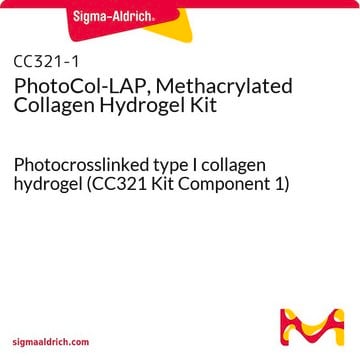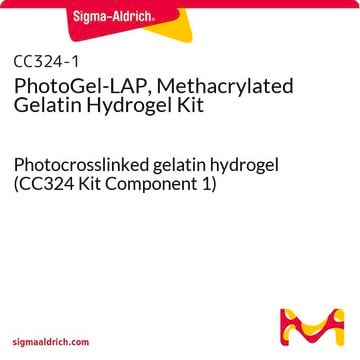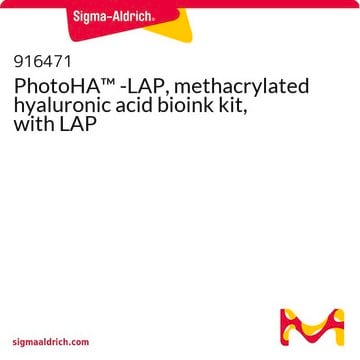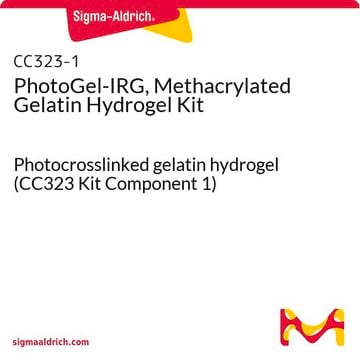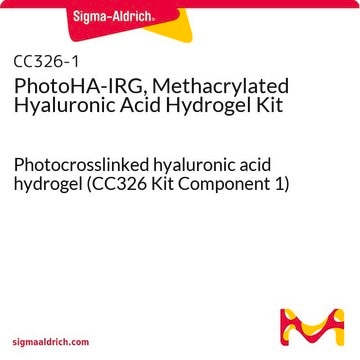CC327-1
PhotoHA-LAP, Methacrylated Hyaluronic Acid Hydrogel Kit
Photocrosslinked hyaluronic acid hydrogel (CC327 Kit Component 1)
Sinónimos:
Hyaluronic Acid Scaffold, Methacrylated Hydrogel Kit
About This Item
Productos recomendados
form
lyophilized powder
application(s)
cell analysis
General description
Application
Packaging
Components
Note: The complete PhotoHA-LAP, Methacrylated Hyaluronic Acid Hydrogel Kit (CC327) consists of CC327-1 and CC327-2 sold seperately.
Quality
Disclaimer
Storage Class
11 - Combustible Solids
Certificados de análisis (COA)
Busque Certificados de análisis (COA) introduciendo el número de lote del producto. Los números de lote se encuentran en la etiqueta del producto después de las palabras «Lot» o «Batch»
¿Ya tiene este producto?
Encuentre la documentación para los productos que ha comprado recientemente en la Biblioteca de documentos.
Artículos
Methacrylated hydrogels enable 3D cell culture scaffolds and bioprinting using light crosslinking.
Methacrylated hydrogels enable 3D cell culture scaffolds and bioprinting using light crosslinking.
Methacrylated hydrogels enable 3D cell culture scaffolds and bioprinting using light crosslinking.
Methacrylated hydrogels enable 3D cell culture scaffolds and bioprinting using light crosslinking.
Nuestro equipo de científicos tiene experiencia en todas las áreas de investigación: Ciencias de la vida, Ciencia de los materiales, Síntesis química, Cromatografía, Analítica y muchas otras.
Póngase en contacto con el Servicio técnico